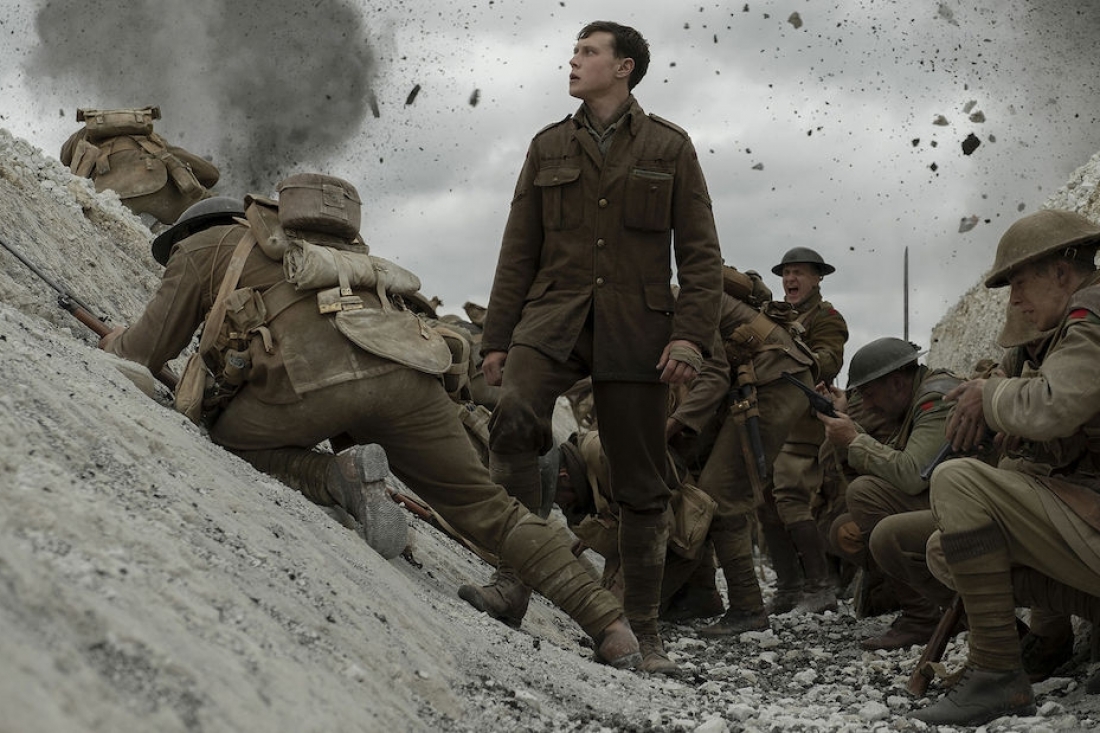

The first shot of the film opens and you see an abundance of beautiful flowers with the backdrop of stunning greenery, and as you get engrossed in this beauty of Northern France, the camera zooms out and there they are, George MacKay and Dean-Charles Chapman, perfectly cast as Schofield and Blake, the two lance corporals, sleeping, only to be woken up to the most bizarre proposition of their lives. They are enlisted to venture into enemy territory with a message for fellow troops poised to launch a potentially catastrophic assault. The Germans have made a ‘strategic withdrawal’, suggesting that they are on the run. In fact they’re lying in wait, armed and ready to repel the planned British push. Together, these young soldiers must reach their comrades and halt the attack – a race against time and insurmountable odds, an especially harrowing one for Blake because his elder brother is a part of the troop, played by Richard Madden.
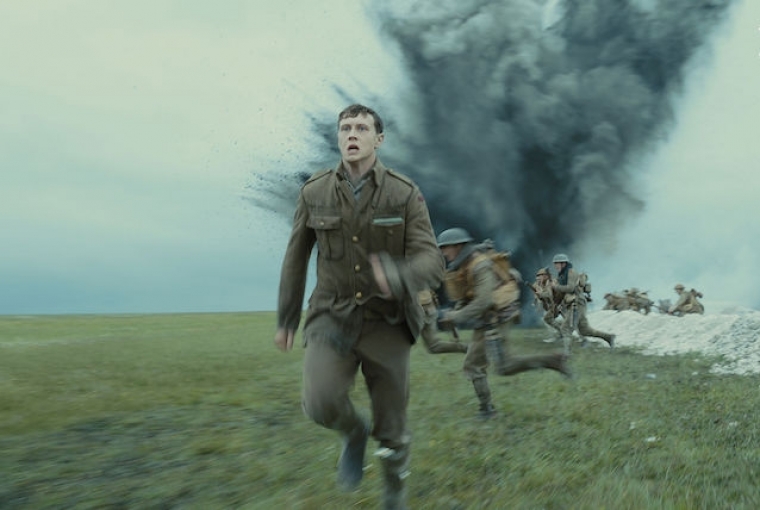
As the first ten minutes pass by, suddenly it dawns upon you that Sam Mendes’ film is nothing short of genius. Like Alfred Hitchcock’s Rope, the film uses the one continuous take format to show the cinematic story unfurl infant of the audience in real time. Albeit, it is important to say that it is practically impossible to shoot a two-hour long feature length film in one take, and you will manage to recognise the points in the film when the takes change, the cinematography is astoundingly seamless. Rightly so, Roger Deakins, the cinematographer of the film, had won the Academy Award for Best Cinematography just a few weeks ago. As the film progresses, you get thrust into the absolutely torturous environment that was the reality of World War 1. The production design is phenomenal as the audience are taken through the many different topological settings, including the nail-biting sequence of the duo crossing the no-man’s land.
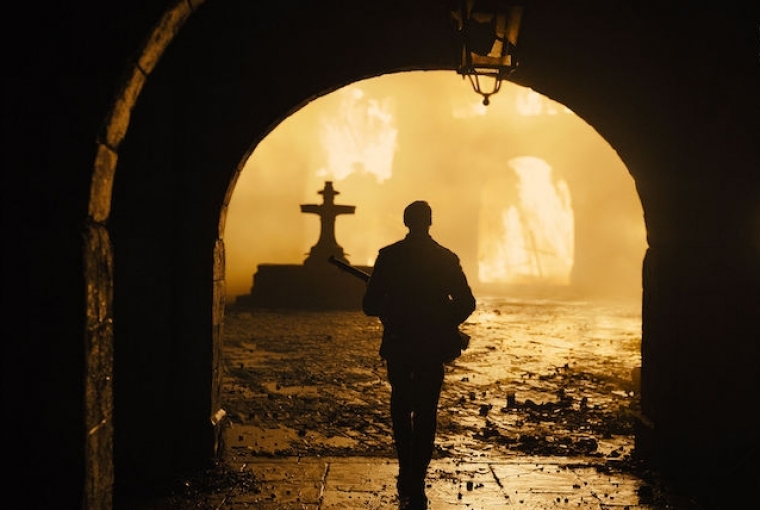
The attention to details is absolutely gobsmacking. In the truest sense of the word, 1917 is an epic. The action is constant, the struggle is relentless, the scope of ghastly environment keeps shifting from one hellish landscape to another, the anxiety is suffocating and the shocks and surprises and perfectly placed and will never fail to jerk you from your seat in horror. Yet, for the incredible vastness if the film, Mendes beautifully captures the individual struggle of the characters. 1917 showcases the boyish face of this conflict, the pitiable plight of a young generation, old or lost before their time. It’s a quality perfectly seen in MacKay’s endlessly watchable eyes, which manage simultaneously to project ravaged innocence and world-weary exhaustion – fatalism and hope.
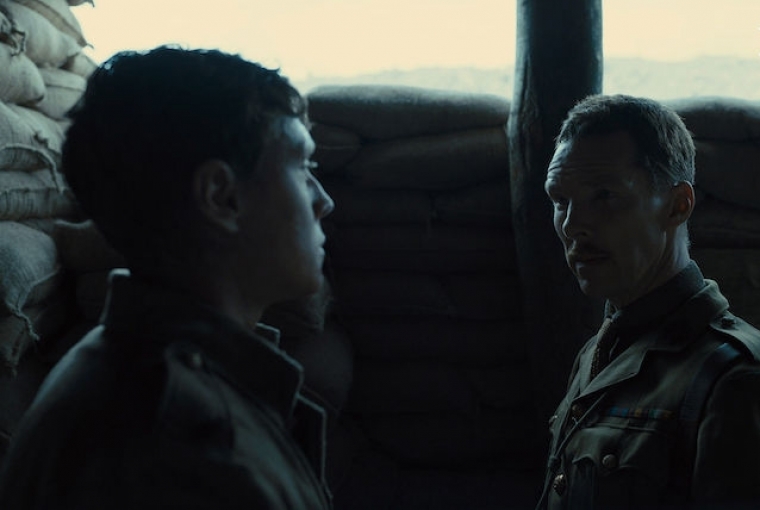
MacKay & Benedict Cumberbatch
If I may take the liberty of using a literary term here, the movie uses a lot of intertextuality. In a rather profound moment nearing the end of the film, Benedict Cumberbatch’s playing Colonel MacKenzie says, ‘Hope is a dangerous thing.’ A line that mirrors the central refrain from The Shawshank Redemption, another humanist movie tinged with horror that seems to haunt Mendes and Krysty Wilson-Cairns’ script. There are evocations, too, of Spielberg’s Saving Private Ryan, not only in the unflinching depiction of battlefield violence, but also in a plot device that sets soldiers searching for a brother in a desperate quest for redemption.
I would have to say that perhaps my favourite moment from the film is after MacKay emerges from a river after a horrific episode of death and rebirth and we find ourselves amidst a woodland where a young man sings The Wayfaring Stranger. There is a soul piercing silence that consumed both the cinematic space and the theatre. In that moment, the tragedy of war suddenly strikes you even more deeply and Mendes’ film becomes one of the greatest war films, a haunting reminder of misery, the desolation, the catastrophic loss of humanity that constituted the first World War.
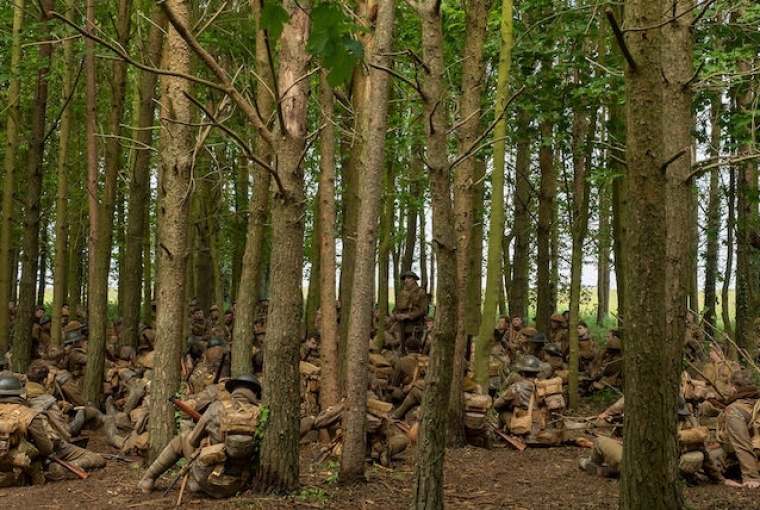
A woodland where a young man sings The Wayfaring Stranger